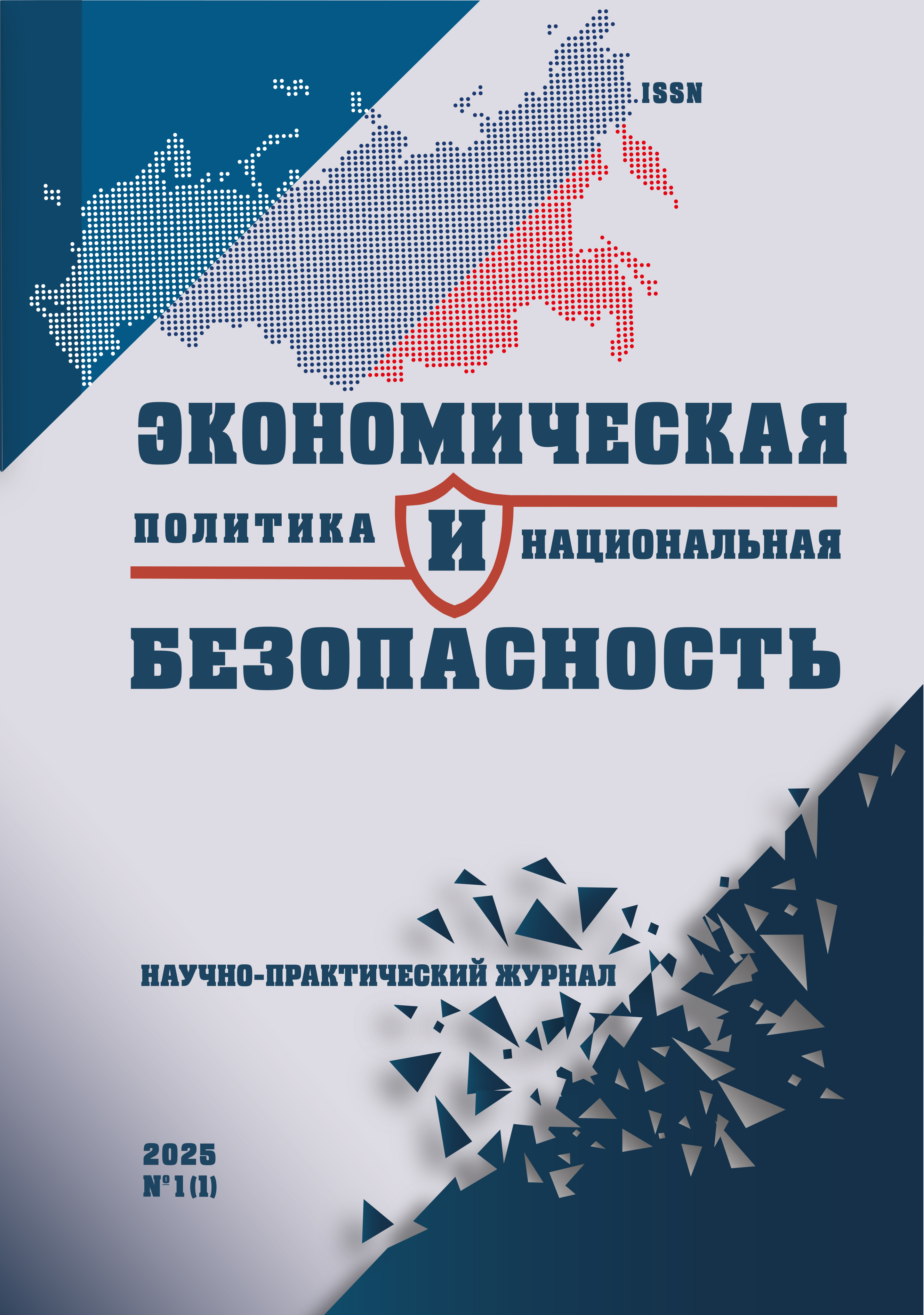Russian Federation
Russian Federation
Introduction. This article deals with the issues of economic assessment of the food security level of the Stavropol Territory for the period 2018-2022. The relevance of the study lies in the importance of calculating and interpreting indicators of physical and economic accessibility of food, sufficiency of food consumption and food quality. Based on the data on exports and imports of basic food products, the regional import coverage ratio has been determined, and subsequently, an integral food security index for the region has been calculated. This assessment is crucial for developing measures to ensure food security; based on these evaluations, programmes are formulated to support vulnerable population groups, improve transport accessibility in remote areas, and reduce income disparity among the population. The information system of the Federal State Statistics Service served as the basis for the research. Methods. The methodological framework of the study consisted of quantitative assessment methods for the food security coefficients of the region and the integral level, which allowed for practical recommendations to stabilise vulnerable indicators and reduce the risk of the region moving to a lower criterion level. Results. The results of the conducted research confirm that the food security of the region must be studied in relation to federal indicators, taking into account the import coverage ratio by exports, and providing an economic justification for the risks of worsening processes such as declining levels of population welfare and purchasing power, as well as revising the food structure towards a more balanced approach.
food security, population, region, analysis, assessment, dynamics, integral coefficient, purchasing power
1. Akimova, Yu. A. et al. 2023. Vneshneekonomicheskaya deyatel'nost' Rossii dlya ustoychivogo razvitiya agroprodovol'stvennoy sistemy v novoy real'nosti [Russia's foreign economic activity for the sustainable development of the agro-food system in the new reality] (In Russ.). 167. Moscow: Rusains.
2. Glazyev, Sergey Yu. 2013. “O prodovol'stvennoy bezopasnosti Rossii : Doklad gruppy ekspertov pod rukovodstvom akademika RAN S. Yu. Glaz'yeva” [“On Russia's Food Security : Report of the Expert Group under the leadership of Academician of the Russian Academy of Sciences S.Y. Glazyev”] (In Russ.). Information and Expert Center “ELECTION CLUB” [Informatsionno-ekspertnyy tsentr “IZBORSKIY KLUB”]. https://izborsk-club.ru/1725.
3. Drindak, Anastasia A. 2023. “Teoreticheskiye aspekty prodovol'stvennoy bezopasnosti v usloviyakh neopredelennosti” [“Theoretical aspects of food security in conditions of uncertainty”] (In Russ.). Obshchestvo, ekonomika, upravleniye [Society, economics, management] 8, no. 4: 11–17. https://doi.org/10.47475/2618-9 852-2023-8-4-11-17
4. Kriulina, Elena N., and Lusine R. Ohanyan. 2023. “Prodovol'stvennaya bezopasnost' regiona: sushchnost', otsenka, prognoz” [“Food security of the region: essence, assessment, forecast”] (In Russ.). APK: ekonomika, upravleniye [Agroindustrial complex: economics, management], no. 8: 23–33.
5. Ovchinnikov, Oleg G. 2021. “Global'naya prodovol'stvennaya problema: sovremennoye sostoyaniye i perspektivy” [“Global food problem: current state and prospects”] (In Russ.). International agricultural journal, no. 6: 564–96. https://doi.org/10.24412/2588-0209-2021-10415
6. Patlan, Egor S., and Yulia M. Sokolinskaya. 2024. “Mnogofaktornaya otsenka prodovol'stvennoy bezopasnosti regiona” [“Sokolinskaya. Multifactorial assessment of regional food security”] (In Russ.). Industrial'naya ekonomika [Industrial Economy], no. 4: 190–194. https://doi.org/10.47576/294-1886.2024.4.4.026
7. Revenko, Lilia S., Olga I. Soldatenko and Nikolay S. Revenko. 2022. “Global'naya prodovol'stvennaya problema: novyye vyzovy dlya mira i Rossii” [“Global food problem: new challenges for the world and Russia”] (In Russ.). Ekonomika. Nalogi. Pravo [Economy. Taxes. Law] 15, no. 4: 54–65. https://doi.org/10.24412/2588-0209-2021-10415
8. Skorev. Mikhail M., and Nikolay O. Shevkunov. 2023. “Prodovol'stvennaya bezopasnost' regiona: sovremennyye vyzovy” [“Food security of the region: modern challenges”] (In Russ.). Nauka i obrazovaniye: khozyaystvo i ekonomika; predprinimatel'stvo; pravo i upravleniye [Science and education: economy and economics; entrepreneurship; law and management] 152, no. 1: 26–31.
9. Tarasova. Elena A. et al. 2022. “Otsenka urovnya prodovol'stvennoy bezopasnosti regiona” [“Assessment of the level of food security in the region”] (In Russ.). Ekonomika sel'skogo khozyaystva Rossii [Agricultural Economics of Russia], no. 5: 54–57. https://doi.org/10.32651/225-54
10. Tsvetkov, Valerii A., and Alesia N. Anishchenko. 2023. “Prodovol'stvennaya bezopasnost' – global'naya problema v usloviyakh geopoliticheskoy napryazhennosti” [“Food security is a global problem in the context of geopolitical tension”] (In Russ.). Ekonomika sel'skogo khozyaystva Rossii [Agricultural Economics of Russia], no. 11: 2–5. https://doi.org/10.32651/2311-2
11. Ali, Nurul I. M. et al. 2025. “Exploring the complex nexus of climate change, food security, and public health: A scientific perspective through bibliometric analysis.” Environmental Science & Policy 170 (May): 104118. https://doi.org/10.1016/j.envsci.2025.104118
12. Forjaz M. J. et al. 2025. “Rasch and Confirmatory Factor Analysis of the Community Wellbeing Index: A Multicountry Validation Study.” Social Indicators Research, (April). https://doi.org/10.1007/s11205-025-03593-y
13. Li, MingDa, Aurélie P Harou, and Averi Chakrabarti. 2025. “Agricultural intensification through multiple-season farming: Effects on resiliency, food security and nutrition.” Food Policy 134 (July): 102833. https://doi.org/10.1016/j.foodpol.2025.102833
14. Sánchez-Zarco, Xaté G., and Jose M. Ponce-Ortega. 2023. “Water-energy-food-ecosystem nexus: An optimization approach incorporating life cycle, security and sustainability assessment.” Journal of Cleaner Production 414, no. 15 (June): 137534. https://doi.org/10.1016/j.jclepro.2023.137534






